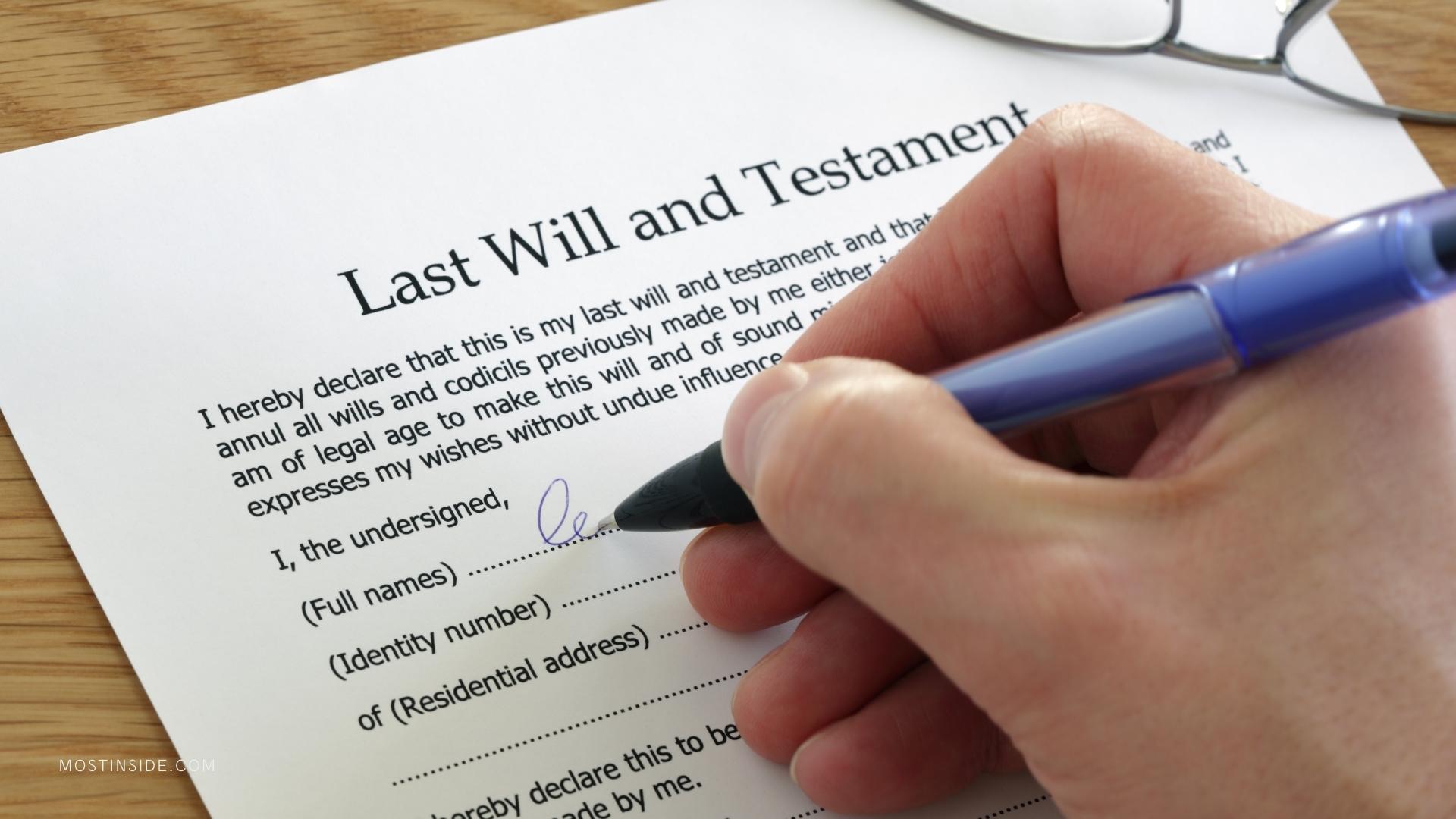4 Things You Need To Know About Creating A Will
This post was last updated on February 6th, 2025
Whether you own a significant estate or not, preparing a will or a death file makes sure that your belongings are passed on to the beneficiaries you want after you die. The court will decide who inherits your property or assets if you pass away without a will. Ownership of assets, in most instances, is given to the closest blood relatives, whether they’re your first choice or not.
A will refers to a legal document explaining how your estate should be distributed after death. Preparing one reduces family disputes over your estate once you pass on. It’s the most effective way to ensure your wishes get implemented once you’re no longer available.

Creating a will isn’t a simple task. Most people are uncomfortable with developing one because the process forces them to acknowledge their inevitable demise and actively plan for it.
If you’re looking to write your will, here are five crucial things you need to know:
1. Not All Properties Get Covered By A Will
A will contains information on how your estate would be managed in your absence. However, not all properties can be covered by the will, which is why you should know what can be covered and what can’t. Estates consist of big, costly assets that you own. These could be cars and properties like residential properties and vacation homes.
An estate may also have smaller items that hold sentimental value like rings, jewelry, art pieces, and photographs. Although wills cover most things in a person’s estate, some properties are not. For instance, retirement accounts and some insurance companies aren’t covered by wills.
Instead, beneficiaries for these property types get listed in institutions as next of kin. Maintaining an updated record of your heirs by date would be instrumental in distributing liquid assets in the event of your death.
2. Hiring An Attorney Isn’t A Legal Requirement
The other thing you should know about creating a will is that hiring a lawyer to draft your will isn’t a legal requirement. Although an experienced attorney can offer sound advice on planning your estate, you can draw your will. A will written in line with a state’s legal requirements becomes valid whether you drafted it or hired a lawyer to do the job.
If you decide to write your will, an excellent way to do so is to use do-it-yourself will kits that are widely available. Once you prepare the will, talk to your lawyer about the power of attorney to ensure your wishes get implemented while you’re still alive.
3. Separate Wills Are Most Preferable
If you have a spouse, you need to know that estate planners universally recommend preparing separate wills instead of joint wills. This recommendation is informed by the low likelihood of spouses passing on at the same time and the presence of properties that may not be owned jointly.
Although separate wills may look similar, they allow spouses to sufficiently address pertinent issues such as children from previous marriages or relationships and ex-spouses. This enables them to plan their estate better; clarifying who would get what while appreciating that probate laws favor current spouses.
4. Know Your State’s Witnessing Requirements
When creating a will, you should be aware of witnessing requirements that apply to your state. As a rule of thumb, a named beneficiary can’t act as a witness to your will, which amounts to a conflict of interest. If you hire a lawyer to draft the will for you, he shouldn’t sign it as a witness. Ideally, your will should be witnessed by a disinterested party. In some states, a will must be witnessed by two or more parties.
Another thing you need to find out in your state is notarization requirements. Some states require wills to be notarized while others don’t. If your state requires wills to be notarized, have your witnesses sign a self-proving affidavit before the notary. With this affidavit, the probate process can be fast-tracked as the witness may not have to appear before a judge to validate the authenticity of the will.

Final Thoughts
Most people fear writing a will because it causes them to think about their demise. However, having a will is critical to planning the management of your estate in your absence. As a legal document, a will speaks for you after your death, informing those you leave behind how you want your assets distributed amongst beneficiaries. Knowing the things discussed above can make the process more manageable if you don’t have a will or wish to update an existing one. Consider the ideas mentioned here as you plan and prepare.
Recommended For You
Why Everyone Needs a Family Lawyer Available To Them
Most Inside
Most Inside offers high-quality recommendations and valuable updates to enhance all aspects of your life, providing premium guidance and enriching experiences.




